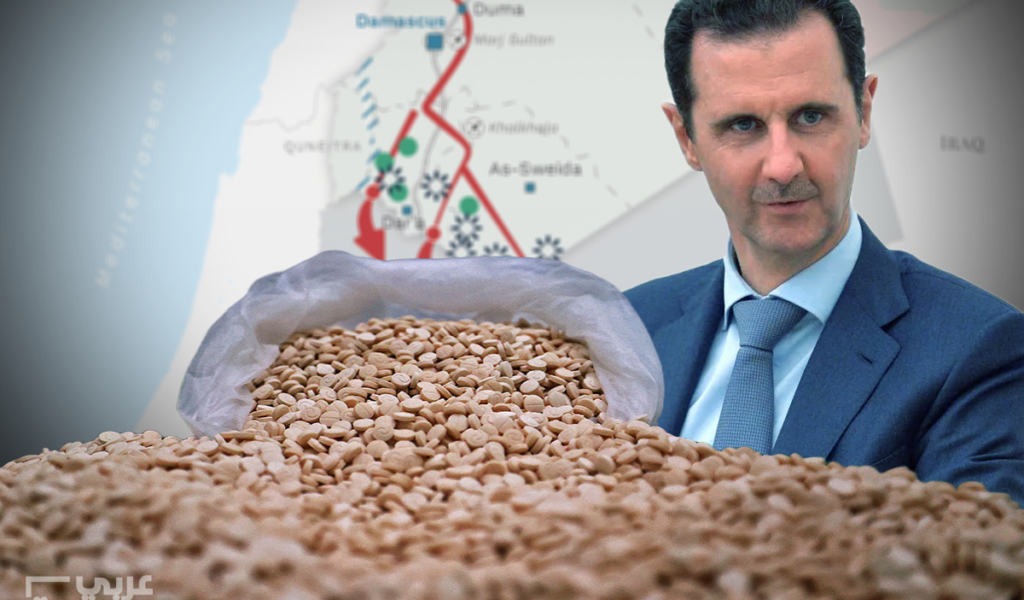The language of Global Justice economic advisor, Dr. Osama Kadi, is characterized by its many dimensions, and when he deals with the Syrian or global economic issue, he does so armed with an arsenal of historical, cultural and political knowledge in his writings; a point that has gained him much acclaim throughout his successful career.
Today, in this excellent research, he goes into depth about Syria and the Captagon drug issue, which has become exasperated due to the Assad regime and has negatively transformed the center of our beloved nation in its capital Damascus, into the most dangerous center for the manufacturing and export of drugs in the regionThe Captagon issue, which has become central to Syria’s internal demise, reflects not only Assad’s handywork in a black market world full of crime and numerous violations of both local and international laws, but also the impossibility of rehabilitating Assad and his regime again. The world is aware today, more than ever before, that after great efforts made by the Syrians affected by this harmful trade, that its damaging affects impact not only those inside the country – and particularly the youth — but that this toxicity has spilled over into neighboring countries and regions into which Captagon is freely dispersed.
The manufacturing of Captagon, under the guidance of Assad, has been further enabled by the Iranian and Lebanese
militias and exported to neighboring countries. In July, Senator Michael McCaul (R-TX) demanded that the U.S. Department of State provide clear answers about why a report issued
by them failed to address the Assad regime’s role in smuggling the drug “Captagon” and called for “understanding Assad’s role in the Captagon trade” as “important to the national security of the United States.” Senator McCaul joined other lawmakers, including Jim Risch (R-ID) and French Hill (R-AR), in a
letter addressed to US Secretary of State Anthony Blinken, on July 22, writing: “We were disappointed that the State Department’s latest report, which was mandated under Section
6507 of the Authorization Act, The National Defense for the fiscal year 2022, regarding the estimated net wealth and sources of income for the head of the regime, Bashar al-Assad, failed to explain the large role of the Assad regime in drug smuggling.”
The White House did not list the Assad regime among 22 countries identified as a major
transit country for narcotics, or major illicit drug-producing countries, even though prominent elements of the Assad regime and its affiliated networks engage in state-sponsored amphetamine production and trafficking.

